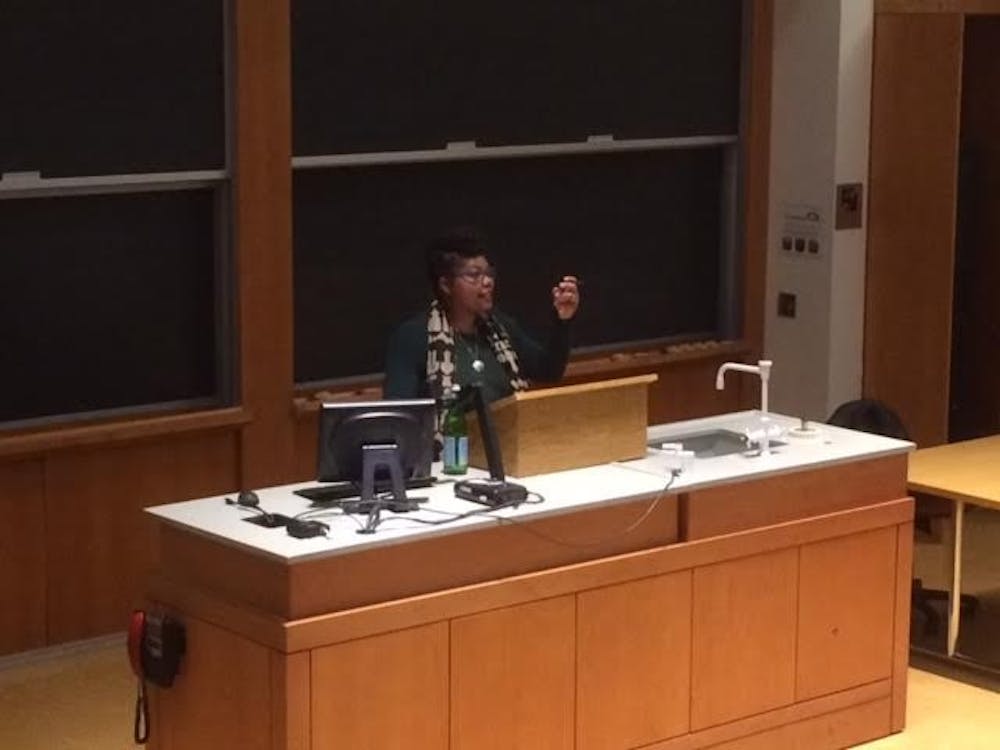“Violence structures everyday life,” said Adriane Lentz-Smith to a crowd of about 50 UNC students and faculty in Chapman Hall Friday.
Lentz-Smith, a history professor at Duke University, gave a lecture for the Department of African, African-American and Diaspora Studies’ annual student research conference titled “‘The Laws Have Hurt Me’: State Violence and the Rebirth of White Supremacy.”
She began the lecture with the story of Sandra Bland — a 28-year old African-American woman who was pulled over for failing to signal while changing lanes and arrested after refusing to put out a cigarette. She was found dead in a Texas county jail three days after the arrest, on the morning of July 13, 2015, and her death was classified as suicide by hanging.
Lenz-Smith said these stories of police brutality reminded her of cases in the 1960s, before and during the Civil Rights Movement.
She said violence in the segregated South — implemented by police officers, politicians and bureaucrats — permeated the economy, domestic life, language and consciousness.
Lentz-Smith spoke about how gender acts as a terrain for fighting political questions of domination, subordination, authority and autonomy.
“White supremacists have long deployed sexualized violence as a weapon of terror aimed at the entire black community and intended to break both bodies and spirits,” she said.
She said Sandra Bland would have been aware of the history of sexual violence toward African-American women when she insistently shouted, “Don’t touch me” to the trooper as shown in the arrest footage.
Shifting topics from gender to self-defense, she said armed resistance is not necessarily the opposite of nonviolence.



